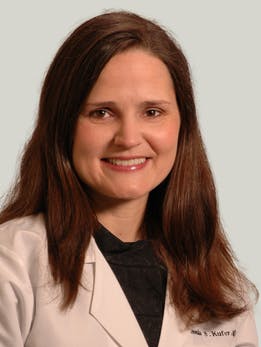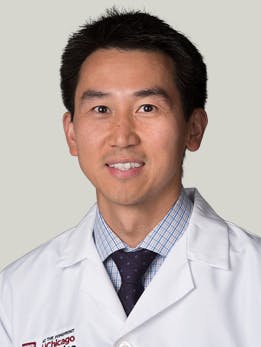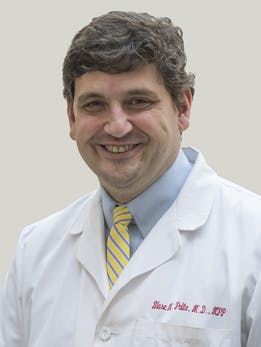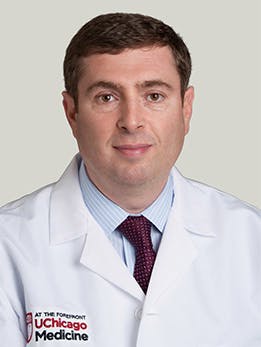College student survives genetic colorectal cancer: 'Nothing has held me back'
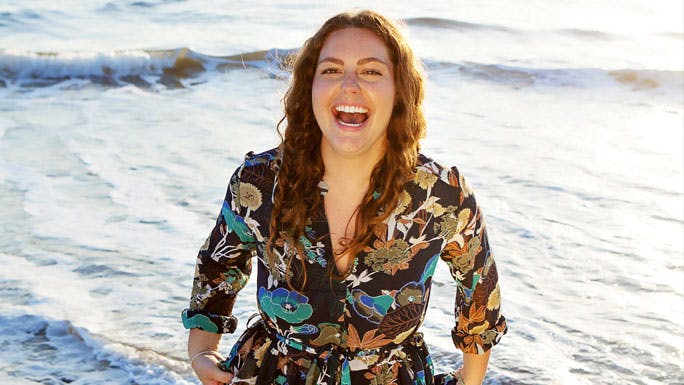
Taylor Murphy's plans for the summer after her sophomore year in college were a lot like those of her classmates. Camping out at the Indianapolis 500. Looking for an internship. Taking a summer school course.
But after just a few weeks, the Purdue University student had to drop her chemistry class and suspend her internship search. The 19-year-old faced a startling diagnosis: rectal cancer.
"From the beginning, my mindset was to stay calm and keep a clear mind," recalled Murphy, who says she has always been a positive person. "I felt I was going to be fine."
Dr. Umanskiy said he would take care of me and do everything he could to get the cancer out of my body.
Her physician in Northwest Indiana referred her to Konstantin Umanskiy, MD, a colorectal surgeon at the University of Chicago Medicine.
"Dr. Umanskiy said he would take care of me and do everything he could to get the cancer out of my body," Murphy said. "My family asked if I wanted to get a second opinion, and I said, 'Absolutely not. This is the hospital for me.'"
Umanskiy assembled a team of experts across several medical specialties — gastroenterology, genetics, oncology, radiation therapy, surgery and gynecologic oncology. The physicians would work together to plan, coordinate and implement Murphy's multifaceted care plan.
Because colorectal cancer is uncommon in younger patients, the team recommended genetic testing. The tests identified Lynch syndrome caused by a rare genetic mutation that significantly increases the chance of developing colorectal cancer at a young age.
"The Lynch syndrome was an important finding," said gastroenterologist Sonia Kupfer, MD, who specializes in diagnosing and treating patients with hereditary gastrointestinal cancer syndromes. "This genetic abnormality predisposes her not only to colorectal cancer, but to other cancers as well. The information helped us design the most effective strategy for treatment and prevention."
Umanskiy added, "We tailor our care approach to each individual patient. We aim not only to cure the cancer but also to preserve the patient's quality of life."
Murphy's treatment took place in several stages over two years. Gastrointestional oncologist, Blase Polite, MD, and radiation oncologist Stanley Liauw, MD, collaborated on the initial phase, which included chemotherapy and radiation to shrink the tumor. Before Murphy began radiation therapy, a gynecologic oncologist performed laparoscopic surgery to move Murphy's ovaries out of the radiation field into her upper abdomen to preserve her ovarian function.
Umanskiy then partnered with a plastic surgeon to accomplish the next course of treatment – two complex surgical procedures performed in tandem. First, Umanskiy used laparoscopic and robotic techniques to remove the colon and rectum, including the cancerous mass and affected lymph nodes. In addition, he created an intestinal opening, called an ileostomy, in Murphy's abdominal wall to allow waste to pass out of the small intestine into an external pouch.
The next step, reconstructive surgery, is usually performed as an open, invasive procedure. The surgeon devised a plan to complete the reconstruction with minimally invasive robotic tools. His inventive solution was the first of its kind performed in the United States.
Although this complex, minimally invasive surgery required 14 incisions, each opening measured between a quarter to a half inch wide. "The scars are very minimal," Murphy said. "I have bigger scars on my knees from tripping and falling when I was a kid."
Despite time away for treatment and recovery, Murphy kept up with her courses and graduated with her class in May 2015. Today, Murphy loves being active outdoors. Camping in Yosemite. Hiking and kayaking with friends. Scuba diving and surfing in the ocean.
"I rolled with the waves," she said. "And I didn't let my surgery or my ostomy hold me back."
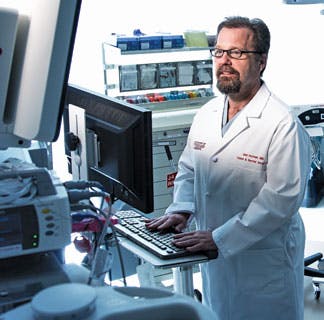
Colorectal Cancer Care
At UChicago Medicine, colorectal cancer care is delivered by a team of experts, including specialists in medical oncology, gastroenterology, colorectal surgery, radiation oncology, genetic counseling and more. Our patients receive holistic care that balances advanced, effective treatment with the goals of preserving bowel function and quality of life.
Learn About Our Colorectal Cancer Care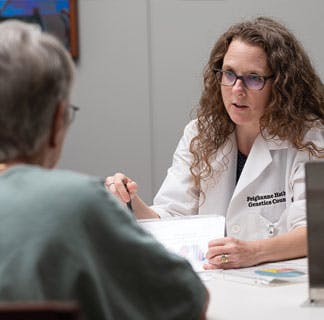
Cancer Risk and Prevention
The UChicago Medicine Comprehensive Cancer Risk and Prevention Clinic is dedicated to identifying and caring for individuals who have an increased risk for cancer due to family history, medical and genetic factors, and/or lifestyle influences.
Learn about cancer risk and prevention services

